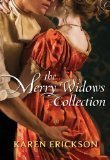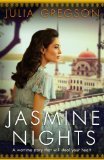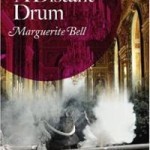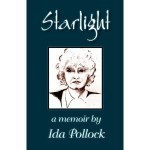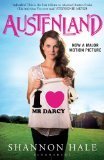Hannah Fielding's Blog, page 130
May 17, 2013
Book review: The Merry Widows Collection: Lessons in Indiscretion/Her Christmas Pleasure/A Scandalous Affair by Karen Erickson
From the blurb:
Enter a sinfully wicked world where three daring women encounter sexy rakes in these erotic adventures…
In Lessons in Indiscretion, widowed Lady Julia Renwick pursues the much younger Earl of Bedingfield and is shocked to discover she has much to learn from him when it comes to passion. In Her Christmas Pleasure, Damien Morton secretly craves the love of his best friend’s widow, Lady Danver, until a stolen kiss under the mistletoe ignites a desire they can no longer deny. In A Scandalous Affair, widowed Lady Pomeroy sets out to seduce the mysterious Marquess of Hartwell—deemed “Black Hart” by society—by wantonly inviting him to a private rendezvous…
This collection of three stories are all linked, as the title suggests, by the fact that each of the female protagonists is a widow. Each was widowed some time ago and each is now looking to move on with her life:
Lady Julia Renwick is thirty-one and her late husband was a lot older than her. After a suitable period of mourning she has decided to take a lover. She has her eyes set on Garrett, the Earl of Bedingfield, a family friend whom she has known for many years. What she doesn’t know is that Garrett has also been watching her and wants to seduce her, and he does not care what society will think about it. So when she proposes that they spend the remains of the season as lovers and then go their separate ways in the summer, of course he cannot help but agree to the arrangements.
Celia Danver is made a young widow when her husband dies in battle. His best friend, Damien Morton, promises that her late husband he will look after her and her son. However, Damien realises that his feelings for Celia are more than that of just friends, and despite his promise he plans to run away. Celia is now also wondering if there is more to life than her son and her in-laws, and at a family Christmas get together the family prompt a kiss between Damien and Celia after they inadvertently have a conversation under the mistletoe. After the kiss, Celia realises that she too wants much more than friendship from Damien.
Daphne was also married to an older man and some time after her husband’s death her brother suggests that she should find herself a new husband. Together, Daphne and her brother plan a masquerade ball so that Daphne might search for a suitable match. One dance with Lord Camden Hartwell and her heart is stolen. But why does Camden behave so oddly?
Each one of these female protagonists is a fun and feisty character that you cannot help but love. The men too are a wonderful mix of handsome, dark and mysterious, with arrogant and tortured souls. It is easy to see why these women fall for them so hard.
These stories are short, but full of intrigue, chemistry and passion. Karen Erickson has a wonderful way with description and creating action-packed stories that you cannot put down:
A quiver moved through her entire body at his husky voice, his breath stirring the hair at her temple. He lifted his head. His eyes were dark, his expression predatory, as if he wanted to throw her over his shoulder and carry her out of the room.
Triumph surged through her. She hadn’t been mistaken. The attraction between them wasn’t one-sided. He wanted her.
But could she seduce the renowned seducer?
“Your mind,” he murmured, his deep voice washing over her, making her skin hum. Oh, she could drown in the sound of his voice. It rippled and flowed like smooth honey, and she wondered what she might do if he whispered wicked things in her ear with that voice.
The man could kiss, and kiss well. He might lack in social skills and behave as if he were being tortured when amongst a crown, but on a one-to-one basis? Hartwell was absolutely divine.
Overall, a fun, easy, satisfying read – ideal for quick-grab romance on the beach, on the commute or curled up in an armchair in the corner of your local coffee house.
The Merry Widows Collection is available now from Amazon; click on the book cover below to visit the store.
May 16, 2013
A stormy sunset
May 15, 2013
Favourite poem: The Albatross
Regular readers of my blog will know that one of my favourite poets is Leconte de Lisle, whose poems are wonderfully visual in that each word contributes to a vivid mental image. Many of his poems are about wild animals, and today I am sharing with you one on the albatross, translated from the French by my friend John Harding.
I love the choice of words in this poem: immensity, bellows, romping, foaming, flings, savaging, shivering, feathery, hammering, majesty. De Lisle never settles for bland language that springs straight to mind; he takes care to choose each word for maximum sense and impact – and this approach, I think, is most admirable, and it has shaped my own writing style.
The Albatross
In the broad immensity from Capricorn to the Pole
The wind bellows, howls, hisses, croaks and mews,
And goes romping across theAtlanticall white
In foaming rage. It flings itself forward, savaging
The deathly-pale waters, harrying and scattering them in fine spray;
It bites, tears, uproots and hacks the massive clouds
Into shivering pieces where a sharp lightning-flash lets blood;
It seizes, wraps round and flings head-over-heels in the air
A whirling confusion of shrill screams and feathery spouts
Which it shakes and drags to the foaming crests,
And hammering the sperm-whales’ mighty brows,
Mingles with its wailings their colossal sobs.
Alone, the King of the endless void and of the shoreless seas
Flies against the wild blasts’ attack.
By a mighty and sure stroke, with neither haste nor halt,
His eye having pierced beyond the ashen mist,
With his iron wings stiffly outstretched
He cleaves the whirlwind spread far in raucous force,
And, quiet amidst the scene of fright,
Comes, passes by, and disappears in majesty.
L’albatros
Dans l’immense largeur du Capricorne au Pôle
Le vent beugle, rugit, siffle, râle et miaule,
Et bondit à travers l’Atlantique tout blanc
De bave furieuse. Il se rue, éraflant
L’eau blême qu’il pourchasse et dissipe en buées;
Il mord, déchire, arrache et tranche les nuées
Par tronçons convulsifs où saigne un brusque éclair;
Il saisit, enveloppe et culbute dans l’air
Un tournoiement confus d’aigres cris et de plumes
Qu’il secoue et qu’il traîne aux crêtes des écumes,
Et, martelant le front massif des cachalots,
Mêle à ses hurlements leurs monstrueux sanglots.
Seul, le Roi de l’espace et des mers sans rivages
Vole contre l’assaut des rafales sauvages.
D’un trait puissant et sûr, sans hâte ni retard,
L’oeil dardé par delà le livide brouillard,
De ses ailes de fer rigidement tendues
Il fend le tourbillon des rauques étendues,
Et, tranquille au milieu de l’épouvantement,
Vient, passe, et disparaît majestueusement.
May 14, 2013
Book review: Jasmine Nights by Julia Gregson
From the blurb:
From the bestselling author of EAST OF THE SUN comes an extraordinary love story.
It is 1942 and the war is tearing Europe apart, shattering lives and devastating countries. But for some, it will be the greatest of adventures.
Saba, a striking, headstrong singer from Wales defies her family to chase her dream of performing to the troops in Europe. It’s a journey that will take her from the faded glamour of Cairo to the heat and opulence of Istanbul, into a decadent, dangerous world of soldiers, spies and double agents. Some want her voice, some her love, and some the secrets she is perfectly placed to discover…
Dom, an RAF pilot, was badly burned when his Spitfire crashed in Suffolk. He knows that flying again is the only way he will conquer the demons that haunt him. Plagued by a dark guilt, a chance meeting with Saba gives him something to hope for. And sometimes daring to fall in love can be the bravest thing of all.
JASMINE NIGHTS is a captivating love story set in a world on the brink of change.
Three reasons why I bought this book:
1. The cover drew me in, conveying romance and an exotic setting and a bygone time – all favourites for me in novels.
2. It’s one of the Richard and Judy Book Club reads, and as I recently read another of their books and loved it (The Fever Tree – see http://www.hannahfielding.net/?p=1745), I took that to be a good recommendation for this book.
3. I read on the back-cover blurb that the book is partly set in ‘the faded glamour of Alexandria’ – my birthplace.
There is much to love in this book. It has that feel of an epic romance, given the fraught time in which it is set, the journeying to foreign climes, the drama and the heroics of the armed forces and the performing arts.
The characters really jump off the page, colourful and vibrant and realistic and highly engaging. I especially loved Dom, and the fact that the author tells the story from his point of view as well as Saba’s, allowing us to see the unfolding story from both sides.
The story I found fascinating, especially the exploration of ENSA – the entertainment wing of the British armed forces that worked during World War 2 to boost the morale of troops in the field. My knowledge of this was really limited to the famous Vera Lynn before reading the book, and I was delighted to get such insight into ENSA through the novel. Very interesting indeed.
I loved the historical setting of the book, especially the references to the music of the time and the fashions (an amusing hair-dying fiasco made me smile). This is the kind of book you can imagine as a film because the sense of the era comes through so strongly. I’d have loved some more descriptions of the places featured in the book, because I so love to imagine exotic settings in my mind as I read, but I understand that this is a more story-led book than a descriptive one.
What I loved most in the book was the very last scene. Without wishing to give away the ending, suffice it to say that it got my heart racing and left me feeling light-hearted and so very glad I had read the book.
Jasmine Nights is available now from Amazon; click on the book cover below to visit the store.
May 12, 2013
Time Out’s 100 Most Romantic Films Ever list
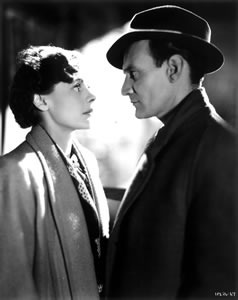 Time Out has put together a top 100 list for romantic movies, complied by 101 experts – film makers, actors, critics and writers. The top ten as voted were:
Time Out has put together a top 100 list for romantic movies, complied by 101 experts – film makers, actors, critics and writers. The top ten as voted were:
Brief Encounter (1945)
Casablanca (1942)
In the Mood for Love (2000)
Annie Hall (1977)
Harold and Maude (1971)
Brokeback Mountain (2005)
The Apartment (1960)
A Matter of Life and Death (1946)
Eternal Sunshine of the Spotless Mind (2004)
Punch-Drunk Love (2002)
What do you think? I was a little surprised by the top ten, I must say, and I think if it had been just regular romantics such as me, rather than experts, picking then the results would have been quite different. For example, last year I did a survey of the most romantic films, and the results were Titanic at the top, followed by Gone with the Wind. Still, the 100 list is an excellent source of inspiration for new movies to try, especially classic ones.
On the Time Out website you can see the full countdown, and take part in a fun ‘How Many Have You Seen’ quiz.
You can also watch clips of the top ten movies on the Huffington Post website.
May 10, 2013
An A–Z of romance
Just for fun, today I’m sharing an A–Z of romantic ideas for creating that special moment with your loved one.
Art – awaken the romantic sensibility by ‘getting cultural’.
Bathe – together?
Candles – for creating an ambient mood.
Dance – the closer, the better.
Eye contact – lingering, sparkling, loving.
Flowers – romance incarnate.
Get away – even just one night away together kindles the flame.
Hand-holding – the simplest connection.
Imagine – whatever you can think of, you can create.
Jest – laughter has its place in romance.
Kiss – often.
Lipstick/lip balm – for soft, beautiful lips that call, ‘Kiss me! Kiss me!’ (see K)
Massage – relaxing, intimate, sensual.
Notice – really focus on your partner, and appreciate what you love about them.
Opera – whatever you see, you’ll be swept away in romance.
Poetry – make up your own to really impress.
Quotations – borrow from the romantic masters.
Rendezvous – the anticipation building, then the exciting moment when you meet.
Strawberries – one of the best aphrodisiac foods.
Terms of endearment – darling, baby, rosebud; whatever says ‘I love you’.
Underwear – take a visit to your local lingerie shop.
Vary – try something new.
Write – send a good old-fashioned love letter.
eXpress – share your deepest, most loving feels without fear of being soppy!
Yearn – absence makes the heart grow fonder; build up to romantic dates.
Zing – whatever you do, do it with joie de vivre!
May 8, 2013
A village with a view
 I love going to the nearby hilltop village of Gassin for its quaint little streets and its stunning views.
I love going to the nearby hilltop village of Gassin for its quaint little streets and its stunning views.
May 7, 2013
Ida Pollock, the world’s oldest romance novelist – a true inspiration
The beauty of writing as both a passion and a career is that you only get better with time, and you need never stop, so long as you have ideas and the will to write.
Did you know that the oldest romance novelist in the world lives in Cornwall, England; is 105; has been writing for nine decades; has published 123 books; and is still writing? I’ve been fascinated to read about Ida in the Daily Mail, the Mirror and the Times.
Some facts about Ida:
She has ten different pen names.
She writes a novel in about six weeks.
She’s written 70 books for Mills & Boon.
She now dictates her books to her daughter, also a writer.
She was married to Colonel Hugh Pollock, Winston Churchill’s editor and once husband to Enid Blyton.
Ida has two Regency romances coming out soon, and her last published book is A Distant Drum:
Here you can watch a video interview with Ida in which she discusses her 123-novel career.
She has also penned a memoir, which is on my ‘to read’ list:
What an inspirational lady! She’s an example for all of us romance writers indeed, and I don’t doubt that the challenge and passion associated with penning romance has played a part in keeping Ida alive and writing. I wish her good health and creativity for more books yet to come.
May 5, 2013
The digital revolution: Making more writers write
As I see it, there are three types of writer:
Type 1: The writer who doesn’t write but dreams of writing.
Type 2: The writer who writes but doesn’t share their writing.
Type 3: The writer who writes and does share their writing.
Over the years, I have evolved from the first type, to the second and, finally – happily – to the third, and I believe I’m just one of many who have followed this course. Confidence, opportunity, will and courage play a part in becoming Type 3, but I also think that the digital revolution has been instrumental in creating a new wave of writers who are willing and able to share their words. Here’s how:
1. The digital revolution means we write more.
In days gone by, we chatted on the phone with people and we met up with them, and we occasionally wrote letters. Now, we text, we tweet, we post updates on Facebook, we blog – each day we shape words into meaningful communications. This is beneficial because:
The more we write, the more writing becomes a habit – the norm, easier.
The more we write, the more we build confidence – we can write; we do so regularly.
The more we write, the more we hone our style. Practise makes perfect, as they say.
2. The digital revolution means we read more.
Blogs, online magazines, online newspapers, websites, books on e-readers: there are so many more ways to access and consume writing now. And the more we read, the more we’re informed and inspired for our own writing.
2. The digital revolution means a wider range of writing is on offer.
No longer are media giants and publishers the gatekeepers of the content we read. We can buy a self-published book. We can read a blog written by anyone, on anything. We can sift through digital content to find all manner of viewpoints, and writing styles. Wonderful inspiration, and empowering for your confidence in your own, unique writing.
3. The digital revolution means we have access to many more mediums through which to share our writing.
Blogs. Twitter. Facebook. Wattpad. Smashwords. Amazon. The list is endless! Whatever your style or genre, whether you’ve written a poem or an article or a novel, you have a wide selection of options for how you share those words with the world.
4. The digital revolution means sharing can be on our own terms.
In times gone by, sharing writing meant traditional publishing – in a newspaper, for example, or a print book put out by a major publisher – or handing copies of writing out to friends and family. The scope for sharing was pretty narrow.
Now, though, you can be your own boss, and your writing can reach a wide readership. But every step you take in the sharing is on your own terms.
For example, say you’re a little wobbly about your writing. You want to share it, but you don’t want criticism. So, you can start a blog, disable the comments function and quietly put your work out there. You’ve published your writing!
Alternatively, you may decide to share a book that you’ve written for free in ebook format. Before digital, that was simply impossible. Now, you can offer your writing to the world as you like.
The verdict
The digital revolution may be something of a worry for publishers (well, except for Random House, which just posted record profits having sold 35 million ebooks of Fifty Shades of Grey). But it’s certainly not a concern for writers. In fact, every new development in the digital sphere is a leap forward in empowering, inspiring and diversifying the playing field for writers.
It’s an exciting time to be a writer, and I hope that every step forward we take into the digital world gets more writers writing. Because for a true writer, to write is to live, breathe, exist.
May 3, 2013
Book review: Austenland by Shannon Hale
From the blurb:
Jane is a young New York woman who can never seem to find the right man – perhaps because of her secret obsession with Mr. Darcy, as played by Colin Firth in the BBC adaptation of Pride and Prejudice. When a wealthy relative bequeaths her a trip to an English resort catering to Austen-obsessed women, however, Jane’s fantasies of meeting the perfect Regency-era gentleman suddenly become more real than she ever could have imagined. Is this total immersion in a fake Austenland enough to make Jane kick the Austen obsession for good, or could all her dreams actually culminate in a Mr. Darcy of her own?
No prizes for guessing why I bought this book to read and review! From the first line, I was smiling:
It is a truth universally acknowledged that a thirty-something woman in possession of a satisfying career and fabulous hairdo must be in want of very little, and Jane Hayes, pretty enough and clever enough, was certainly thought to have little to distress her.
I loved the premise – a modern-day heroine plunged into Austen’s world – and I found it startlingly realistic (and rather appealing) to the point that I found myself, as I read, itching to click onto a search engine and see whether such full-immersion literary retreats actually exist in England. I imagine they do. I hope they do!
The writing is well-researched, fresh, original and colourful, with lovely descriptive touches, such as:
Some voices get hard and tight with age, some rough like broken glass. Her voice was soft sand beaten by waves till it’s as fine as powdered sugar.
I very much enjoyed the interweaving of classic English literature references, such as:
a comfortable-sized room with a canopied bed, baby blue walls, sparsely furnished, not gothic enough to tempt her to look for ‘Catherine Heathcliff’ engravings on the windowsill.
… and the author’s clear self-awareness of the Austen link throughout:
The chitchatted… Jane thought she understood why Austen often left these conversations up to the narrator and spared the reader the grotesquery of having to follow it word by word.
Occasionally, I wanted to feel a little more that the author had a sound understanding of England – sometimes a little detail jarred for me as not feeling authentic – but overall I think she does very well in situating the book in its English setting.
I loved the humour throughout, such as the interspersed recollections of Jane’s earlier, doomed, romances, and the ‘chicklit’ feel to some of the scenes. It’s a fun book, a happy and easy read, with plenty of heart-warming moments.
But don’t take that to mean this is a fluffy, irreverent book. In fact, I think the author is exploring a very real issue that hinders many modern-day women: getting stuck in fantasy, so that reality can never be enough. The author so beautifully encapsulates the struggle for a romantic in this modern world to find a happy-ever-after. For example:
At a very young age, she had learned how to love from Austen. And according to her immature understanding at the time, in Austen’s world there was no such thing as a fling. Every romance was intended to lead to marriage, every flirtation just a means to find that partner to cling to forever.
Through Austenland, we are able to really explore the fantasy of being Elizabeth Bennett, and we see both the wonderful side of that life, but also the downside (all the sitting about gets a little boring after a while, I must say). Ultimately, the ending is very satisfying, and the lead character, Jane, has been on an eye-opening journey and has finally tackled her Mr Darcy obsession.
Austenland is available now from Amazon; click on the book cover below to visit the store.

